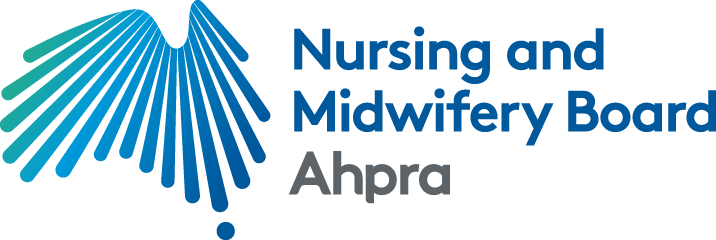The Nursing and Midwifery Board of Australia (NMBA) requires all nurses and midwives to complete Continuing professional development (CPD) each year.
The standard applies equally to enrolled nurses, registered nurses and midwives who work either full-time or part-time in paid or unpaid practice. CPD enables nurses and midwives to maintain, improve, and broaden their professional knowledge, expertise and competence, and is critical to practitioner's meeting their obligation to provide ethical, effective, safe and competent practice.
Annual CPD hours
The NMBA’s Registration standard: Continuing professional development requires nurses and midwives to complete a minimum number of continuing professional development CPD hours directly relevant to a nurse or midwife’s context of practice.
| Type of registration | Minimum hours | Total hours |
|---|---|---|
| Registered nurse or Enrolled nurse |
20 hours |
20 hours |
| Midwife |
20 hours |
20 hours |
| Registered nurse and midwife |
|
40 hours |
| Enrolled nurse and midwife |
|
40 hours |
| Nurse practitioner |
|
30 hours |
| Midwife with scheduled medicines endorsement |
|
30 hours |
| Nurse and midwife with scheduled medicines endorsement |
|
50 hours |
Pro-rata adjustments
When a nurse or midwife registers part-way through a registration period, pro rata CPD requirements will apply as outlined below (see Table 1) and in the Registration standard: Continuing professional development. Practitioners holding dual registration must complete CPD hours for both professions.
Table 1
| Months registration has been held | CPD hours |
|---|---|
| 0-3 months | ≥ 5 hours |
| 3-6 months | ≥ 10 hours |
| 6-9 months | ≥ 15 hours |
| 9-12 months | ≥ 20 hours |
When a nurse and/or midwife is endorsed part-way through a registration period, pro rata CPD requirements will apply as outlined below (see Table 2) and in the Registration standard: Continuing professional development.
Table 2
| Months endorsement has been held | Additional pro rata CPD hours that must be completed |
|---|---|
| 0-3 months | ≥ 2.5 hours |
| 3-6 months | ≥ 5 hours |
| 6-9 months | ≥ 7.5 hours |
| 9-12 months | ≥ 10 hours |
Documentation and compliance
Practitioners must keep records of your CPD activities for at least five (5) years from the date they completed the CPD. All CPD records must be available for audit or if needed by the NMBA as part of an investigation arising from a notification (complaint).
To help with CPD recordkeeping, the NMBA has developed a self-directed CPD evidence record that can be used for planning and recording CPD. It is not mandatory to use this template, but CPD records must include all the information listed in the template.
All evidence should be verified, and it must demonstrate that the nurse or midwife has:
- identified and prioritised their learning needs, based on their self-reflection and evaluation of their practice against the relevant competency or professional practice standards
- developed a learning plan based on identified learning needs
- participated in effective learning activities appropriate to their learning needs, and
- reflected on the value of the learning activities or the effect that participation will have on their practice.
Supporting CPD in the workplace
Employers play a crucial role in facilitating and supporting CPD. There are many things that you can do to support professional development in the workplace:
Align CPD with NMBA Standards and Professional Practice
- Encourage practitioners to use NMBA standards and guidelines as a basis for setting CPD goals, including the Standards for Practice and Code of Conduct. This ensures CPD activities directly address essential competencies, safety standards, and ethical considerations.
Encourage planning and reflective practice
- Collaborate with practitioners to create CPD goals aligned with their context of practice, role requirements and areas for growth. This may include updating knowledge in specialised care areas or enhancing leadership and mentoring skills.
- Research shows that CPD is more effective when it involves planning and reflection. Incorporate structured reflection on how completed CPD activities apply to day-to-day practice and meet NMBA standards. This reflective approach encourages continuous improvement and accountability.
Provide access to CPD opportunities
- Consider in-house activities, online learning modules or conferences and workshops
- Support a range of activities, from formal courses to self-directed learning, like research or reflective writing.
Exemptions for CPD requirements
In exceptional circumstances (e.g. serious illness), the NMBA may grant exemptions. Practitioners must apply directly to Ahpra for an exemption and provide supporting evidence.
Nurses and/or midwives seeking a CPD exemption due to exceptional circumstances must submit a request in writing to the Ahpra office in their state or territory. Evidence to support the request for an exemption may include a letter from a treating health practitioner.
More information
More information regarding CPD is available in the following practitioner directed resources:

